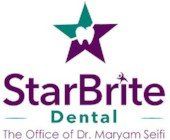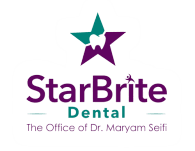Detecting And Treating Gum Abscesses
Have you ever heard someone say that they have an abscess in their gum? They might have talked about pain or an inability to chew on one side of their mouth. If they were smart, they rushed to their dentist and got immediate treatment.
What exactly were they suffering from? An abscess is a swollen, infected area that has filled with pus. In this case, the swollen area is in the gums. It could be a superficial abscess or one that develops deep in the gums, as we will describe in a moment.
So that you will know if you ever suffer from a gum abscess, we’ll explain what to look for, what to expect from treatment and how to prevent the formation of abscesses.
Gum Abscess Symptoms
How can you tell if you have this problem? Look for these gum abscess symptoms:
What Causes Gum Abscesses?
There are two different types of gum abscesses and they have slightly different causes:
Gingival abscesses: These occur in the gums immediately around the teeth and often occur after a foreign object becomes lodged in the gum. It could be a seed, the paper-thin shell of a nut or a fragment from a toothpick, for example. This foreign object causes a localized infection.
Periodontal abscesses: This kind of abscess develops deep in a pocket between the gum and the tooth.
Pockets form when tartar builds up on the teeth and is not cleaned away regularly. The
gums pull away from the tooth and the pocket that results gives bacteria a place they can thrive.
Other than a foreign object being lodged in the gums, the basic cause of a gum abscess is poor oral hygiene. Prevention requires
maintaining a regular schedule of professional cleanings and a good at-home regimen of brushing and flossing.
A person with an impaired immune system is more likely to suffer from abscesses. The following situations can make abscesses more likely:
- Diabetes
- Heart disease
- Hepatitis C
- Medications that cause dry mouth
- Diets high in sugar
How to Get Rid of Abscesses on Gums
If you’re wondering how to get rid of abscesses with at-home care, you will not be able to do it. You need professional treatment by a dentist.
Your dentist will look for any foreign object that could be causing the infection and remove it. If there is no foreign object, it’s probably an infection that started in a pocket that formed between the teeth and the gums.
The dentist may press or tap on a tooth in the affected area to see if it is sensitive to pressure. An x-ray is usually needed to find out if the abscess has begun to affect the bone around the tooth and to determine the exact location and size of the abscess.
The abscess will need to be drained by making a small incision so the pus can drain out. The area will be washed out and antibiotics are usually prescribed.
However, antibiotics alone will not relieve a gum abscess. Only treatment by a dentist will get rid of abscesses on gums. Many people have a few pills of antibiotics sitting around the house and may take these in an effort to self-treat the infection. There are many types of antibiotics and this leftover prescription may not be the right kind for a gum abscess. In addition, the pus must be drained out of the area so it will begin to heal.
Following treatment, all the
pockets between the gums and the teeth must be eliminated. Your dentist may recommend
treatment that cleans away tartar from under the gums so they will heal more tightly attached to the teeth. When the gums have healed properly after this treatment, the pockets should diminish and maintenance continued to prevent further bacteria from thriving.
Preventing Gum Abscesses
Not keeping the tartar cleaned off your teeth is usually what causes gum abscesses. Prevention consists of working with your dentist to take proper care of your teeth. A regimen like this is recommended:
- A regular schedule of professional cleanings and examinations
- Brushing twice a day
- Flossing once a day
- Replacing your toothbrush every three months
- Avoiding sugary or high-carbohydrate foods
Additionally, if you suffer from any of the conditions which would increase your risk of gum abscesses, make sure your dentist knows. He or she may want to schedule you for more frequent cleanings.
Emergency Dental Care Is Needed
If you think you have a gum abscess, you should call your dentist and ask for an emergency dental visit. If left untreated, the infection could rapidly spread to other areas or your pain could become worse. This infection can quickly destroy the bone immediately around the tooth.
In Rockville, Maryland, Dr. Maryam Seifi of
StarBrite Dental offers
emergency dental care to alleviate the pain and complications that can result from a gum abscess. Dr. Seifi has the expertise to eliminate a gum abscess and treat any gum or oral conditions to reduce the risk of abscess in the future.
In the
Rockville, Maryland or Washington, D.C. metropolitan areas, please call Dr. Seifi’s office at (301) 770-1070 to request emergency care.



